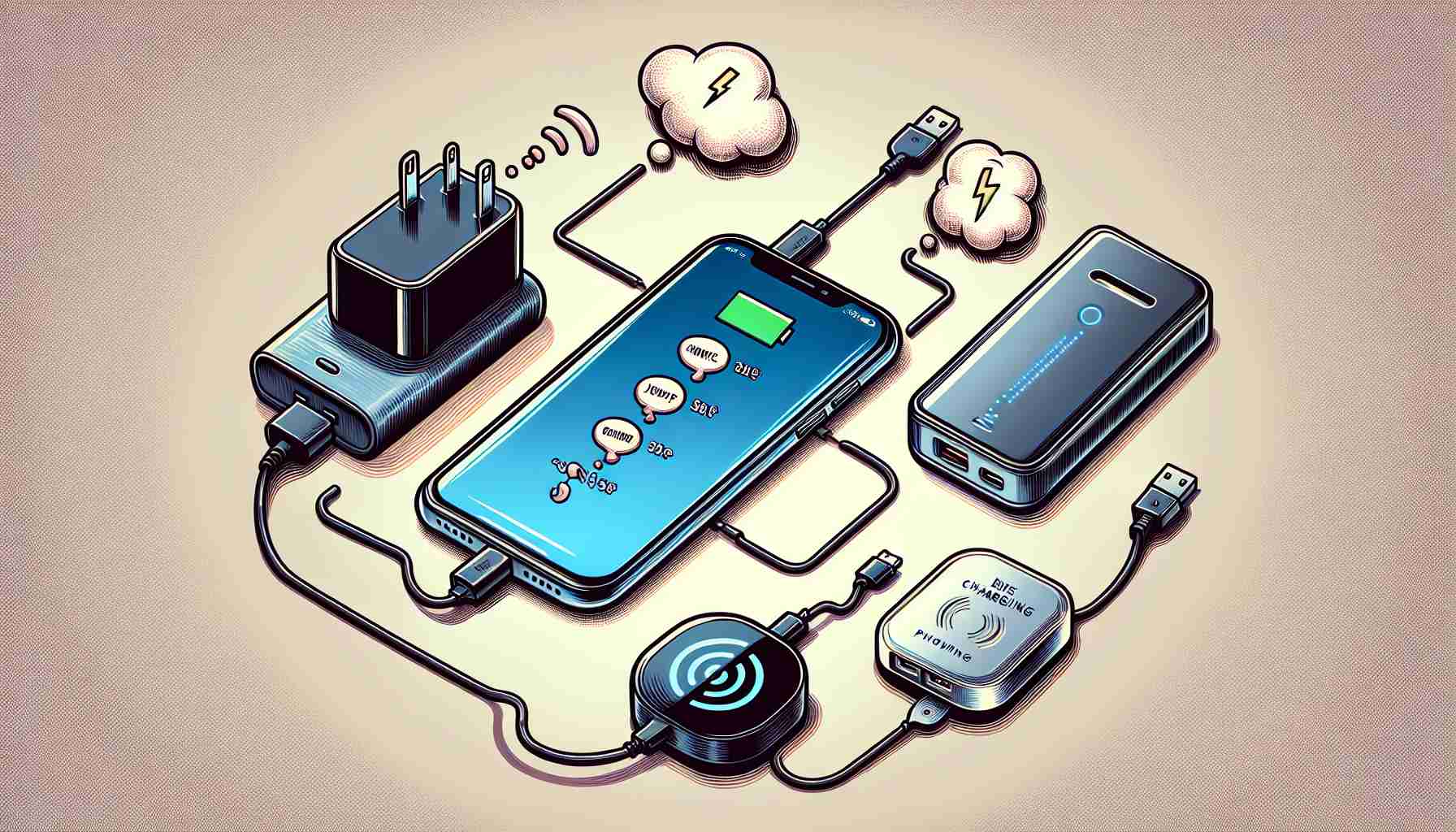
In an eye-opening announcement, several organizations, including the Beijing Association for Science and Technology, have tackled a widespread misconception regarding smartphone battery care. The widely held belief that letting your phone’s battery drain completely before recharging it extends battery life has been debunked.
This myth originates from past technologies, specifically the use of nickel-cadmium batteries. These older batteries experienced a “memory effect,” which could temporarily reduce their capacity if not fully discharged before recharging. However, the technology powering today’s devices has significantly evolved.
Modern smartphones are equipped with lithium-ion batteries. Experts have clarified that for lithium-ion technology, allowing the battery to fully deplete before charging can actually harm its capacity. Instead, these batteries thrive on partial charges. Keeping the battery level between 20% to 80% is generally regarded as beneficial for maintaining battery health over time.
The report encourages users to regularly charge their phones before the battery runs out entirely and to avoid overcharging. This new guidance ensures your device remains functional and reliable for a longer period.
Consider your current charging habits. Are they potentially harming your device’s battery life? A small adjustment in when you charge your phone might make a big difference. As the understanding of technology advances, adopting these practices can help get the most out of our beloved gadgets.
The Untold Truth About Smartphone Battery Health: What You Need to Know
The Hidden Impacts of Modern Charging Practices
In a rapidly advancing technological world, it’s crucial to stay informed about how our gadgets work. Today’s smartphones, powered by lithium-ion batteries, have sparked a significant shift in how we perceive battery care. While the recent revelation debunking the old myth of fully depleting phone batteries before charging may seem minor, it has broader implications on individual lifestyles, global consumption, and environmental health.
Interesting Facts and Controversies
One lesser-known fact about lithium-ion batteries is their susceptibility to heat. Excessive heat can accelerate chemical reactions within the battery, potentially leading to reduced lifespan or even dangerous situations like swelling or explosion. This has sparked debates over the design of smartphones, including whether manufacturers should introduce more effective cooling systems, especially given the increasing power of modern devices.
Another controversy surrounds the fast charging capabilities present in most modern smartphones. While convenient, fast charging generates more heat, which can contribute to the gradual degradation of battery health. This raises questions about the balance between quick power-ups and long-term battery longevity.
Advantages and Disadvantages
The advantages of lithium-ion technology are evident in its efficiency and contribution to device portability. However, recognizing the nuances of optimal battery care can extend these benefits. For instance:
– Advantages: Improved understanding and practices can lead to enhanced battery lifespan, economic savings over time, and reduced electronic waste.
– Disadvantages: For some users, constantly managing battery levels can become an inconvenience. Additionally, misinformation and poor charging practices remain widespread, potentially rendering these benefits moot for uninformed users.
Global Implications
On a larger scale, better battery habits could influence the demand for battery replacements and new phones, impacting both the economy and the environment. With appropriate usage, phones remain functional longer, reducing the frequency of electronic waste and the need for resource-intensive manufacturing of new devices.
Critical Questions and Answers
– Is fast charging worth it despite the potential harm to the battery? The convenience of rapid charging is undeniable, especially during emergencies or travel. However, for daily use, it’s advisable to opt for slower, standard charging methods to preserve battery life.
– How does geography play a role in battery health? Regions with hotter climates can experience faster battery degradation due to consistent exposure to high temperatures. Users in such areas should take extra precautions to keep their devices cool.
– Can software updates help in better battery management? Yes, manufacturers often release updates that improve battery management. These updates can include enhancements like adaptive charging, which adjusts based on user habits to optimize health.
Conclusion
Navigating the complexities of battery care might seem technical, but being informed can lead to practical benefits for individuals and communities alike. As we integrate these practices into our daily routines, we contribute to a broader shift towards sustainable technology use. Always remember to stay updated with reliable sources and consider making these small yet impactful changes to get the most out of your gadgets.
For more on tech advancements and device care, visit TechCrunch, Wired, or The Verge.
